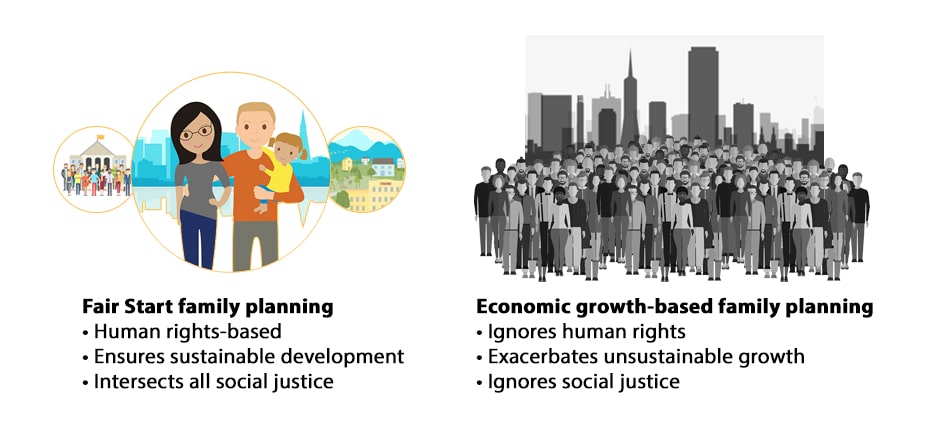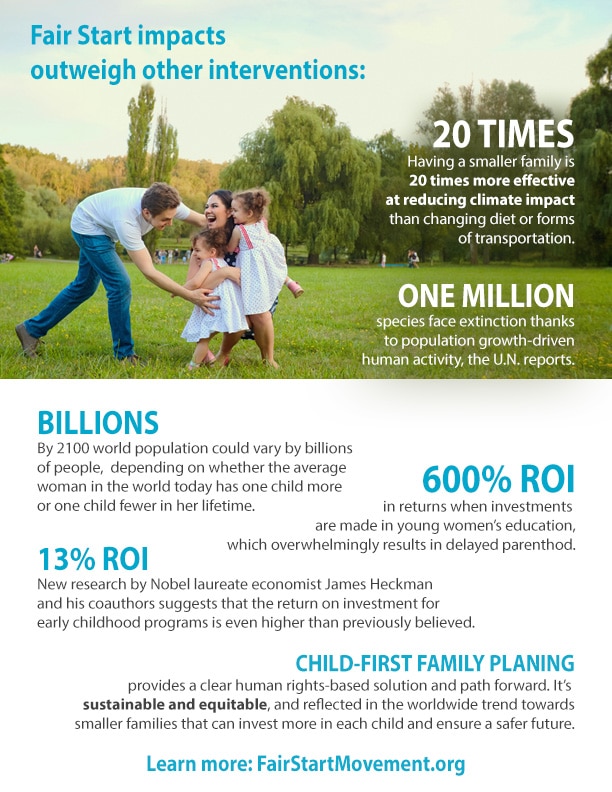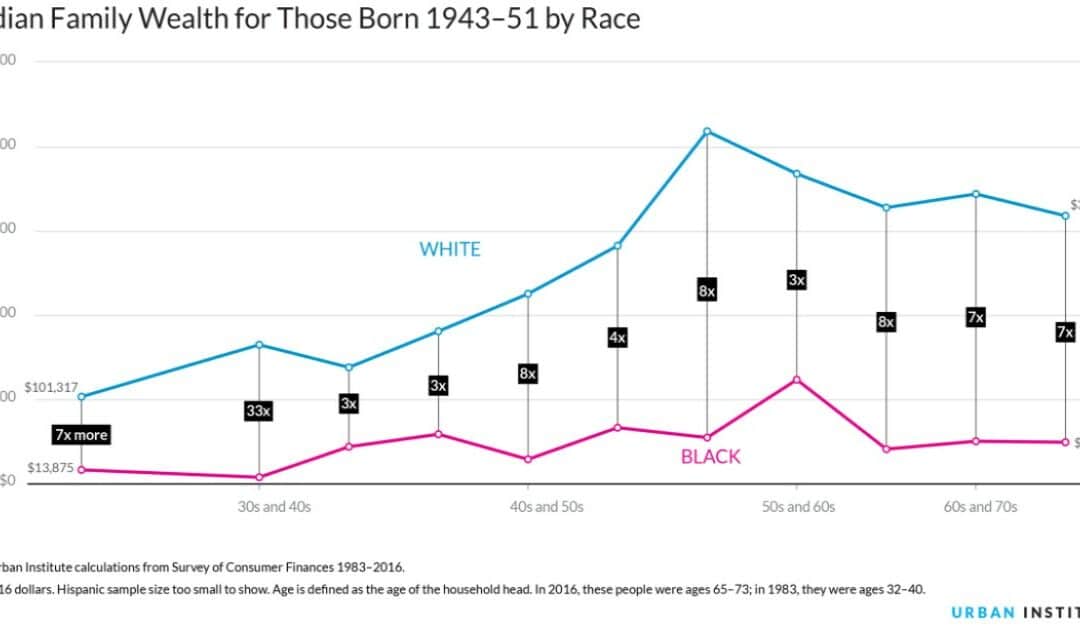What is the most good we can do? This is a question effective altruists (EA) grapple with. And that community, which is large and comprised of many viewpoints, answers the question in a variety of ways.
But doing the most good is a question that has already largely been answered by the Children’s Rights Convention, which acts as a binding assessment of the ecosocial conditions in which children should be born and develop in order to comprise just communities. These conditions include a restored climate, and relatively equal opportunities in life that are currently out of reach (see the chart above).
In other words, while we may wish to do good, we have a primary obligation to protect future generations, and in compliance with the Convention. EA is limited by this human rights regime and deontological population (or really, power) ethics, because while many in EA value economic growth, that growth is conditioned on our complying with human rights norms that – in instruments like the Convention – show how to empower people. We need to first use human rights standards to create people for town halls, rather than the utility-producing shopping malls many in EA favor, because the latter are only legitimate if they are regulated by functional – human rights-compliant – versions of the form.
For example, some in EA might assume a good use of corporate profits would entail charitable donations to things like animal welfare reforms. The reality is that if we do not use human rights to assess the true costs of those profits on people and future generations, we actually end up doing more harm than good to humans and nonhumans, as measured against things that override EA principles, like biding human rights instruments. Instead of a focus on stripped-down welfare, a human rights-based approach enables consent to power – a more basic value the precedes and allows us to truly do good.

Admittedly the Convention has not been applied as a standard for family planning, but it could be, using family planning incentives/entitlements geared as climate reparations for future generations, with distributions/fees scaled inversely to wealth as a means of promoting climate restoration as well as parental readiness, birth equity, and sustainable families. How can we possibly be effective, or efficient, without developing each child to their full potential, in the freeness of nature that Henry David Thoreau described as the fundament of economy?
The climate and inequity crises we face today fundamentally flow from denying the eco-social conditions promised by the Convention (denied to them per one Nobel Laureate to ensure the growth the enriched a few), because in self-governing communities where authority flows bottom up, our fundamental power relations and development becomes the exclusive reason for such outcomes.
The fossil fuel industries currently being targeted at COP27 seem like ideal targets to urge to first fund this transition from parent-centric to child-centric planning. And using the Convention, perhaps reinterpreted as requiring that we take democracy seriously by applying this inversion principle, would avoid what might be called the constitutive fallacy, or treating anything other than a fair creation norm that empowers people (from whom the legitimacy of things like state constitutions derive) equitably – per the inversion – as the ultimate obligation. How can we separate our values from ourselves, and our creation?

How can EA accept property rights, for its charitable distributions for example, without this obligation? Property rights cannot derogate from our being free and equal people capable of determining who should have such rights. Assigning them without the changes made here is preconstitutional, and antidemocratic.
Without ensuring minimum levels of welfare for future children, and the autonomy of the nonhuman world that is part of that welfare, EA is simply using its platform to exploit the most vulnerable entities. They were committing a simple baseline error – randomly assigning costs and benefits without first being a group of people who can inclusively engage in such analysis.
If we reject the fundamental fairness described here, we end up with a system that does not allow people to meaningfully participate in creating the rules under which they must live, a system that is thus backed by violence rather than consent. And we would force people to live, disempowered as such, amid massive and growing inequity and in an increasingly hostile environment.
We can use the great concentrations of wealth that growth created (wealth now defended by systems of violence) to fund incentives/entitlements to bend the arc of our existence away from that future, and towards a biodiverse future where each child gets what they need, and participatory democracy – or freedom – is the reality. It would be wrong not to shift that wealth, by all means effective, given that its true costs were externalized on the women and children the incentives/entitlements would go to.
If we do not, and the situation degrades as described above, many people in that situation will turn to self-defensive violence, free people who through effective leaderless resistance models will limit and decentralize the violence-backed power (like the property rights EA now relies upon) others have over them, in part by taking the resources necessary to invest in young women’s constituting true democracy through better family policies.
TAKE ACTION: THERE ARE DOZENS OF WAYS TO PROMOTE TRUE FAIRNESS AND JUSTICE. CHOOSE ONE NOW.

